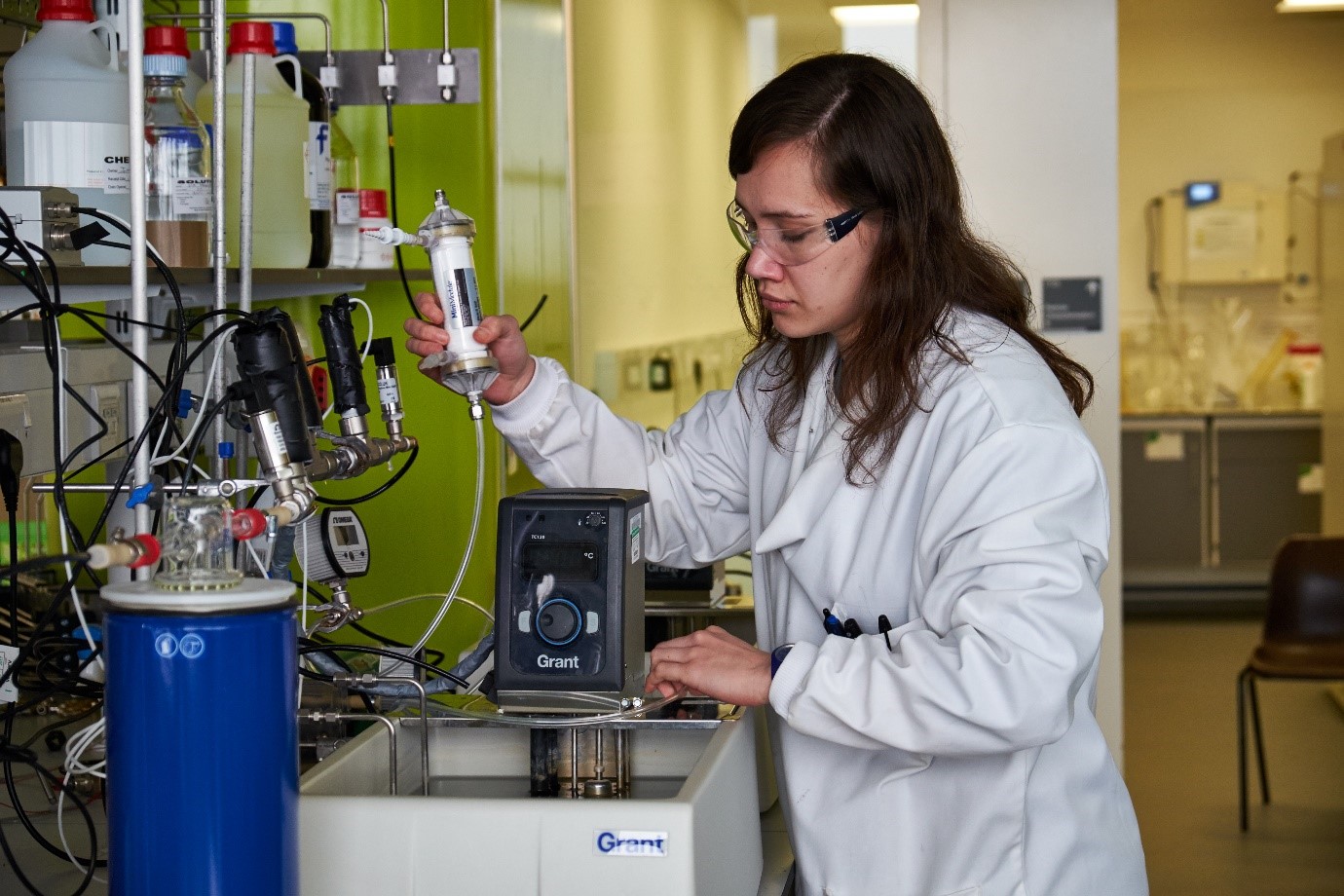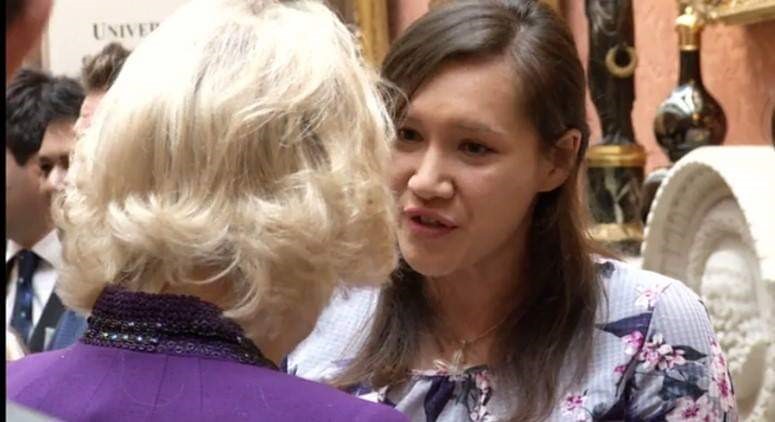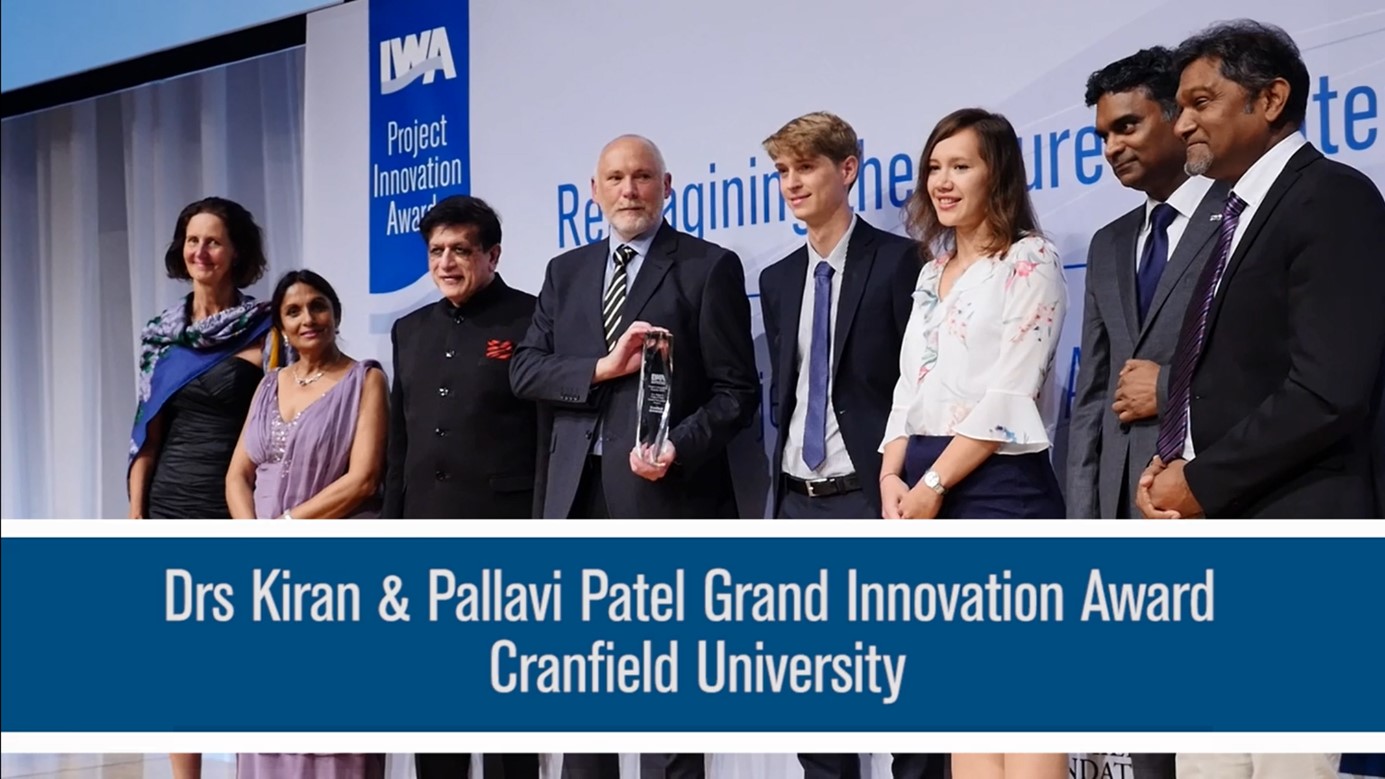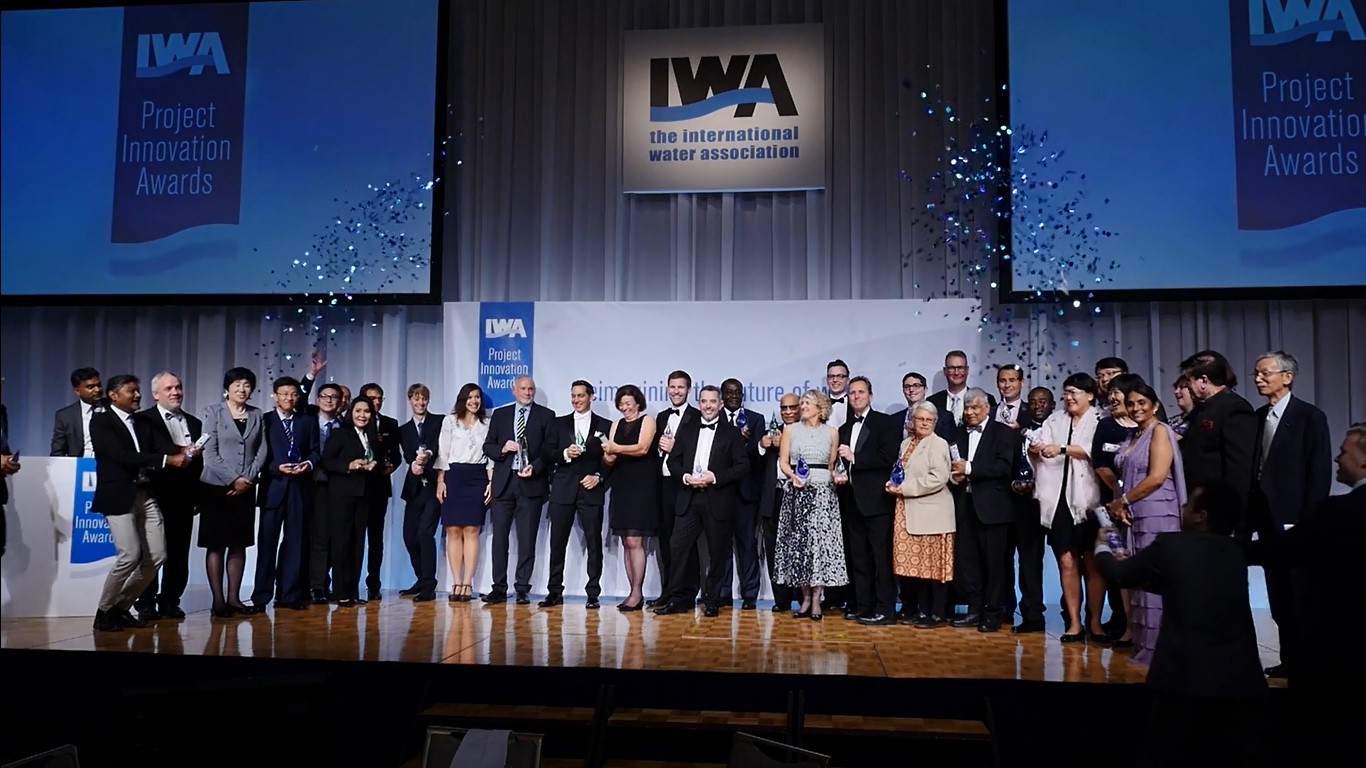A sit down with Dr Edwina Mercer
26/03/2020

Can you tell me about your background and how you came to Cranfield?
I studied a Geography degree at the University of Hull because I’m interested in different cultures and the natural environment. What I discovered during that time was that there is a huge problem with water resources, so I focused my dissertation on that.
My dissertation assessed the impact that the increasing number of oil palm plantations have on water quality. There was a huge loss in endemic biodiversity and that made me realise that I want to find the solutions for water related problems and that’s when I started to research Water Engineering at a post grad level.
I did my MSc in Water and Wastewater Engineering here at Cranfield in 2012-13. Then that led onto my thesis project which was phase 1 of the Nano Membrane Toilet. I then took a year to experience the industry job sector at Suez Environment and then I returned to do my PhD which was phase 2 of the Nano Membrane Toilet.
I came at just the right time when everything was just starting up with the Nano Membrane Toilet so it’s been an exciting journey from its start to where it has progressed.
Did you know much about Cranfield before you came here?
I hadn’t heard of Cranfield before I started looking into the MScs but I found it really stuck out because of its industrial links what it has done globally.
As I have gone to water science related conferences around the world and talked to people at other institutions, I have found it is well known for its management, aerospace and water science. At the International Water Association conferences, everybody knows about Cranfield.
So now you are a Post Doc at Cranfield, can you tell me about your research now?
A new water science research area in non-sewered sanitation has been introduced since ‘Reinvent the Toilet Challenge’ which funded the Nano Membrane Toilet and that has led to my post doc in Sanitation Science.
The project I am working on now is funded by the Bill and Melinda Gates Foundation through Duke University and in collaboration with Melbourne University. It has allowed me to interact and learn from international experts from a truly multidisciplinary team. We are investigating the characteristics and behaviour of fresh faeces in order to provide a strong scientific understanding to enable the design and engineering of de-watering technologies for non-sewered sanitation systems. Moisture content is one of the key inhibitors for energy recovery and therefore, if minimise moisture content, we can make these systems off-grid and sustainable. Understanding the science behind faecal dewatering will provide an effective dewatering solution which requires minimal cost and energy requirements allowing such systems to become commercially available.
Do you have a typical day?
On a typical day, I collect ‘donations’, which consist of fresh urine and faeces, which are later used for various experiments in the lab.
The donations come from anonymous volunteers in the office. These donations are extremely valuable to move this research forward. Other scientists can order all their chemicals from Fisher Scientific or Sigma Aldrich but we specifically need this material so it’s very important for people to donate.
What are the biggest challenges in role or area of research?
The research that we are carrying out is quite novel in the fact that it’s a waste matrix that’s never been really trialed before so has been like venturing into the unknown. In my PhD, a lot of it was applying advanced technologies to this waste matrix which is more concentrated and behaves completely differently. New methods had to be developed and many of the results unexpected when compared to conventional wastewater. It has been like really learning from scratch but has also been exciting to become a pioneer.
Have you had any unique experiences at Cranfield?

I was very lucky to go with the University to Buckingham Palace when we won the Queen’s Anniversary Prize in 2015 for Water and Sanitation. Also, the Nano Membrane Toilet won the Grand Innovation Prize from the International Water Association so we got the opportunity to go to Tokyo. So usually, my day-to-day life is in the lab and is about getting your hands dirty and then suddenly you can go from that to complete luxury at Buckingham Palace and to these incredible high profile award ceremonies where you realise what all your hard work has contributed to.


What do you like most about working at Cranfield?
I like how international and intimate Cranfield University is. When I was a student, one of my best experiences was being part of the football and badminton teams and you get to know people closely. You end up getting to know everybody on campus and it’s a really friendly bunch of people. You also get to work with a lot of international contacts in the projects and it’s very inspiring to bounce ideas off such a diverse array of people.
What are you most proud of?
I think probably coming from a geography background and then completely changing my expertise. When I first arrived, my MSc course had a lot of students with engineering backgrounds so I had to really come up to scratch with them. But the Cranfield MSc provided really good introductory courses and provide great support along the way from staff members. The staff to student ratio is 1:7, which is a lot more than other universities and there’s always opportunities to get involved in.
The other thing I’m really proud of is how much I have contributed to the Nano Membrane Toilet project and I am grateful to be part of such an inspiring team.
Categories & Tags:
Leave a comment on this post:
You might also like…
Keren Tuv: My Cranfield experience studying Renewable Energy
Hello, my name is Keren, I am from London, UK, and I am studying Renewable Energy MSc. My journey to discovering Cranfield University began when I first decided to return to academia to pursue ...
3D Metal Manufacturing in space: A look into the future
David Rico Sierra, Research Fellow in Additive Manufacturing, was recently involved in an exciting project to manufacture parts using 3D printers in space. Here he reflects on his time working with Airbus in Toulouse… ...
A Legacy of Courage: From India to Britain, Three Generations Find Their Home
My story begins with my grandfather, who plucked up the courage to travel aboard at the age of 22 and start a new life in the UK. I don’t think he would have thought that ...
Cranfield to JLR: mastering mechatronics for a dream career
My name is Jerin Tom, and in 2023 I graduated from Cranfield with an MSc in Automotive Mechatronics. Originally from India, I've always been fascinated by the world of automobiles. Why Cranfield and the ...
Bringing the vision of advanced air mobility closer to reality
Experts at Cranfield University led by Professor Antonios Tsourdos, Head of the Autonomous and Cyber-Physical Systems Centre, are part of the Air Mobility Ecosystem Consortium (AMEC), which aims to demonstrate the commercial and operational ...
Using grey literature in your research: A short guide
As you research and write your thesis, you might come across, or be looking for, ‘grey literature’. This is quite simply material that is either unpublished, or published but not in a commercial form. Types ...







That’s my sister!